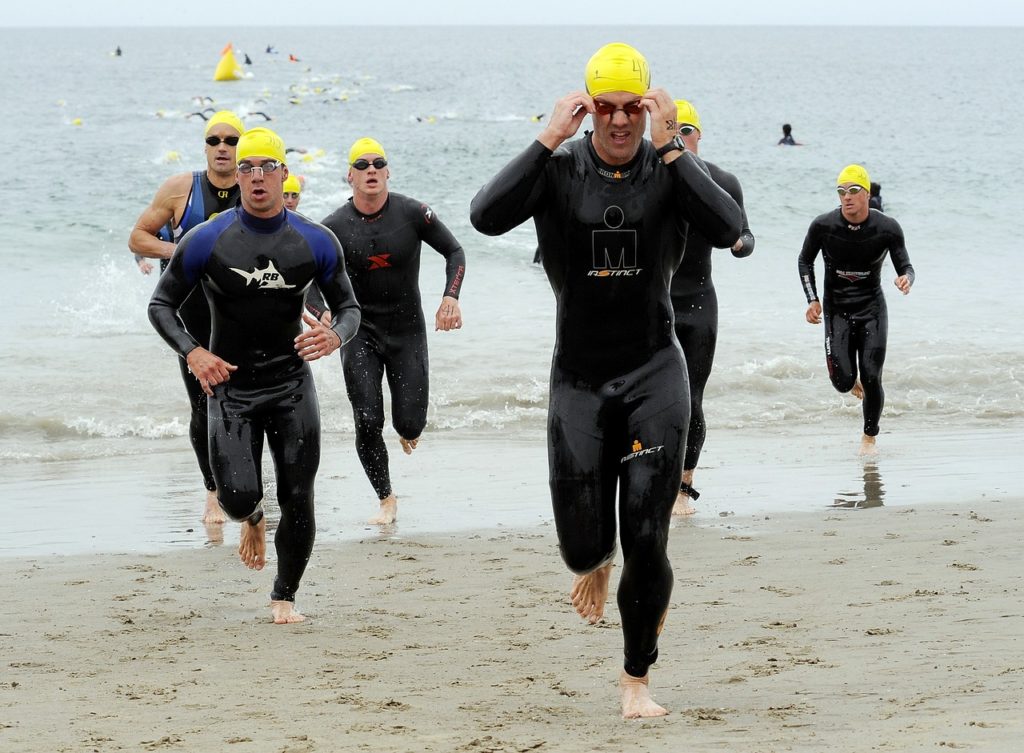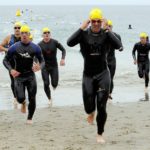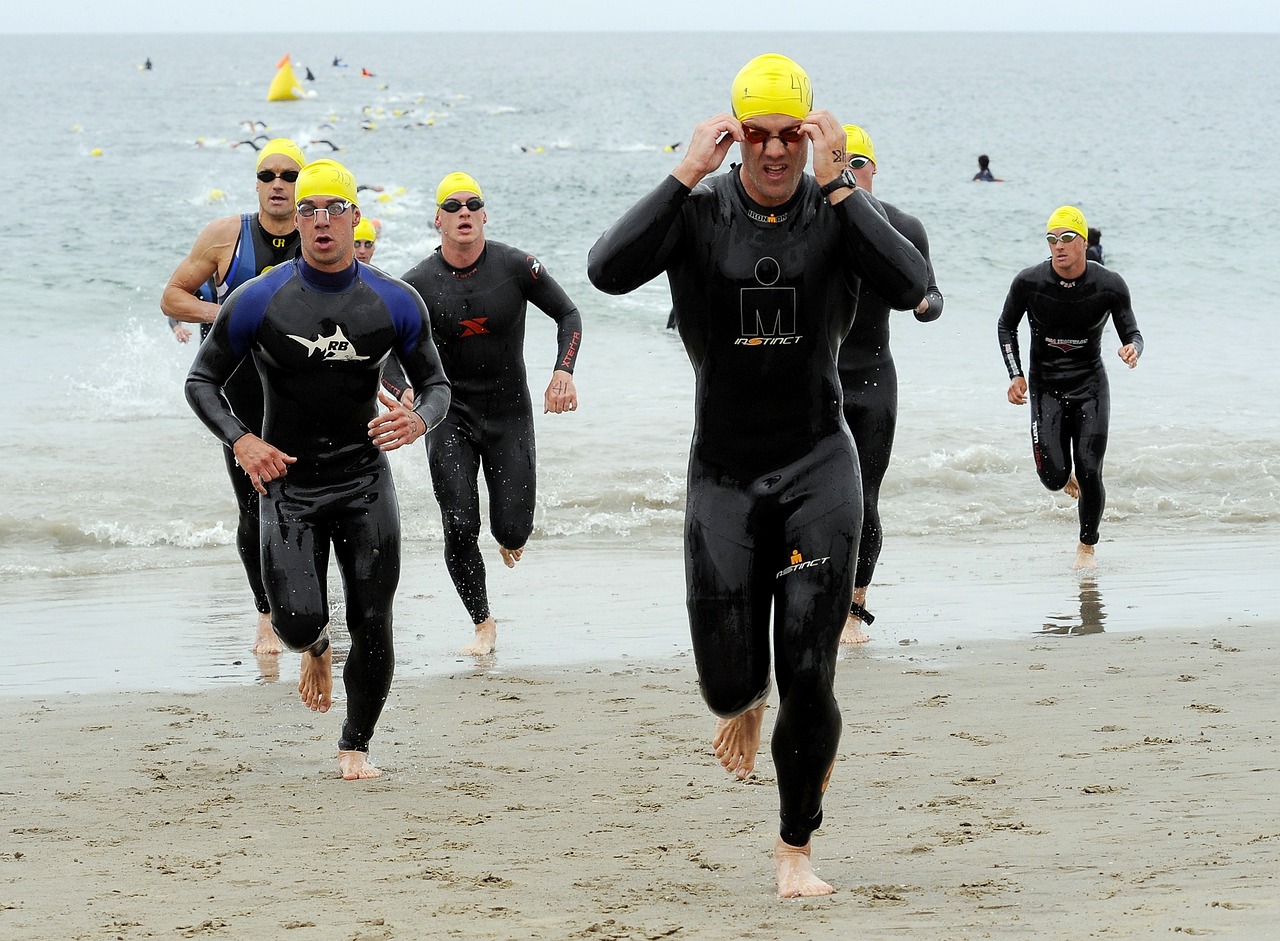Triathlons are not just for the faint of heart or those who are content with staying within their comfort zone. Instead, a triathlete’s journey is about pushing limits and constantly challenging oneself to be better, faster, and stronger. Brett Holeman, a certified school psychologist, will delve into a triathlete’s mind and explore what drives them to go beyond their physical and mental boundaries.

The Triathlon Journey
No undertaking symbolizes the human spirit’s desire to excel more than the triathlon. To understand what drives these athletes, we must first appreciate the enormity of their task. For many, the road to a triathlon starts with a single step, a swim, or a pedal—but it does not end until after miles of each have been completed, often many times over.
Training Regimen
The commitment to training for a triathlon is one of complete immersion. Months—even years—of preparation are required to fine-tune the body for the many challenges it will face. Long rides through unpredictable weather, intense speed sessions in the pool, and unending miles on the pavement are the daily bread of every triathlete. It’s a regimen that demands unwavering dedication and a systematic approach to gradual improvement.
Mental Toughness
Beyond physical endurance, mental toughness is the most valuable currency in a triathlete’s repertoire. They must learn to silence the voice of doubt and push through the most excruciating aspects of training and competition. Each training session is both a physical workout and a mental drill, preparing the athlete for the relentless nature of the race.
Nutrition and Recovery
A triathlete’s body is a high-performance machine that must be fueled and maintained precisely. Nutrition is more than just eating right; it’s a carefully calculated science, tailor-made for each athlete’s individual demands and specific race. Recovery is equally significant, as the body must be repaired and strengthened to face the next day’s training with as much intensity as the last.
Mental Fortitude: The Key to Success
Triathlons are grueling endurance events that require tremendous physical and mental strength. While training is crucial for building physical endurance, mental fortitude separates successful triathletes from the rest. Triathlon training involves long hours of swimming, cycling, and running, often back-to-back, which can be physically exhausting. However, it’s the mental fatigue that truly tests a triathlete’s determination and grit.
The Power of Mindset
Triathletes understand the power of mindset and how it can make or break their performance on race day. They train their minds to remain focused and determined even when faced with challenges such as adverse weather conditions or unexpected setbacks. They know that their mental state can affect their physical performance, so they work on developing a positive mindset to stay motivated and push through the toughest parts of a race.
Overcoming Doubts and Fears
Triathlons involve swimming in open water, cycling on challenging terrain, and running long distances. These activities can trigger doubts and fears in a triathlete’s mind, but they have learned to manage and overcome them. By staying focused on their training and visualizing success, they can conquer any doubts or fears that may arise. This helps them during races and in other areas of their lives where resilience and mental strength are required.
Embracing the Journey
Triathletes understand that success is not just about crossing the finish line first. Instead, it’s about embracing the journey and learning from each experience. From grueling training sessions to race day setbacks, every challenge is an opportunity for growth and improvement. Triathletes deeply appreciate the process and understand that each step, no matter how small, is crucial to their overall success.
Resilience and Adaptability
Triathletes also possess a remarkable ability to bounce back from setbacks. They can adapt and return stronger, whether it’s an injury, a missed training session, or a disappointing race. This resilience helps them in their triathlon journey and in navigating life’s challenges.
The Power of Community
While triathlons may seem like a solo sport, they are built upon a strong community of athletes who support and motivate each other. Triathletes understand the power of surrounding themselves with like-minded individuals who share their passion and drive to succeed. This sense of camaraderie and support not only makes training more enjoyable but also helps them push through tough times.
Final Thoughts
Triathletes are not just athletes; they are warriors who constantly push the limits of what their minds and bodies can achieve. They may face setbacks and challenges, but their determination, resilience, and sense of community keep them going. With unwavering determination, mental grit, and a deep appreciation for the journey, they inspire others to embrace challenges and strive for excellence in all areas of life.










